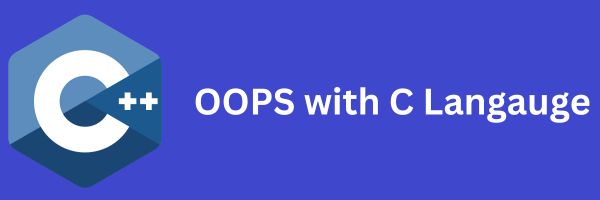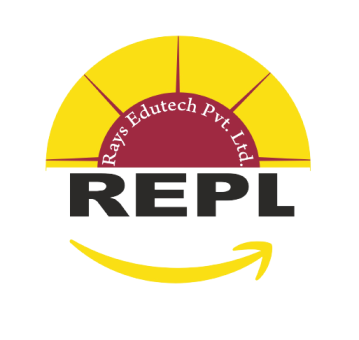WhatsApp
9308654075
Courses
- Web Development
- Data Analytics
- Data Science with AI
- Cyber Security
- Python
- Django
- C Language
- C++
- Java Training
- Data Structure
- Algorithm
- Front-end Development
- JavaScript, jQuery & Ajax
- React.js
- Node.js & Express.js
- MySQL
- SQL
- PL/SQL
- Oracle
- MongoDb
- SQLITE
- ADCAT
- ADCA
- DCA
- Tally Prime
- Advance Excel
- COA
- ADOA
- GST
- TAT
- TDS & Payroll

C++
This language is majorly a superset of C language. C++ is portable and can be used to develop applications that can be adapted to multiple platforms. It gives a clear concept of object-oriented programming and allows code to be reused, lowering development costs.
| Course Name | Date & Time | Take Demos |
|---|---|---|
| Core Java | 03/06/2024 | View Details |
| User Interface(UI) | 03/06/2024 | View Details |
| React.js | Starting Soon... | View Details |
| MySQL | Starting Soon... | View Details |
| ADCAT | Starting Soon... | View Details |
Where it is used?
Cpp language is mostly used in the following application:
- Games
- Graphics user interface application
- Web browser
- Advance computation and graphics
- Database software
- Operating system
- Enterprise application
- Compilers
WHY REPL?
- Life time validity (enroll one time and revise many times)
- Interaction with the best faculty and Industry Experts
- Small Batches to focus on each student
- We focus on both theoretical and practical approaches in a parallel way.
- You will be given the opportunity to work on a live project.
- Outdoor activities to boost your confidence.
- Presentation in class by the students.
Our Key Features:
- Good Quality Material Notes
- Smart Classes Available
- Online Test
- Chapter wise Assignments
- Offline And Online Classes
- Recorded class on Rays App
- Eminent faculties of the IT Industry( Amazon, Wal-Mart, Oracle, Microsoft..)
- Fully AC and Wi-Fi Campus.
Syllabus
C++ (Object-Oriented Language)
- About class and object
- Features of object oriented language
- Encapsulation
- Data abstraction or abstraction
- Polymorphism
- Inheritance
- Evaluation of C++
- Programming paradigms
- Advantages of oop
- Some object oriented languages
- About source code of c++
- Compiling, linking and executing a c++ application
- Stream hierarchy
- Output using predefined object cout
- Escape sequence character
- Input using predefined object cin
- Typecasting with cout statement
- Member function of ostream class
- (i) put() (ii) get() (iii) write() (iv) width() (v) fill()
- Member function of istream class
- (i) peek() (ii) ignore() (iii) read()
- Manipulators used with cout
- (i) endl (ii) hex (iii) oct
- Major differences between C++ and C
- Basic term of c language
- Use of access operator
- Use of new operator
- Use of delete operator
- Object oriented methodology
- Defining class using reserved word class and struct
- About access specifier
- Allocating object in c++
- Allocating object at compile time
- Allocating object at run-time
- Accessing and allocating object in different region
- Use of dot(.) operator
- Use of arrow (->) operator
- Allocating object into different memory region
- Defining member function outside class
- Use of this pointer in c++
- Use of constructor in c++
- About constructor and properties of constructor
- Types of constructor in c++
- Default constructor
- Overloaded constructor
- Copy constructor
- Object assignment
- Accepting object as an argument
- Accepting object as a value
- Accepting object as a address
- Accepting object as a reference
- Returning object as an argument
- return as a value
- return as an address
- return as a reference
- About copy constructor
- Member data allocated dynamically
- Use of destructor in c++
- Use of static reserved word in c++
- About friend function and friend class
- Array of objects
- Introduction to operator overloading
- Overloading Arithmetic operators
- Overloading Comparison/relational operators
- Overloading assignment operator
- Overloading inserter (<<) and extractor (>>) operator
- Operator overloading concept for string manipulation
- Overloading increment (++) and decrement (--) operator
- Conversion from class type to basic data type
- Conversion from basic to class type
- Explain the concept of inheritance
- Use of protected access specifier in case of inheritance
- About overriding and overridden member
- Use of constructor and destructor in case of inheritance
- Use of access specifier in the case of inheritance
- Type of inheritance
- Single inheritance
- Multiple inheritance
- Hierarchal inheritance
- Multi level inheritance
- Hybrid inheritance
- Multi-path inheritance
- Early / static / fixed binding
- Dynamic binding / virtual function
- Pure virtual function / abstract class
- Access violation error
- Ambiguities found in cases of inheritance
- Introduction to template
- Need of template
- About template / generic function and class
- Introduction to exception handling
- Use of keyword try, throw and catch
- Exception handling mechanism

Request A Demo!
|
|
|
|
|
|
|
|
Sign In!
|
|
|
|
